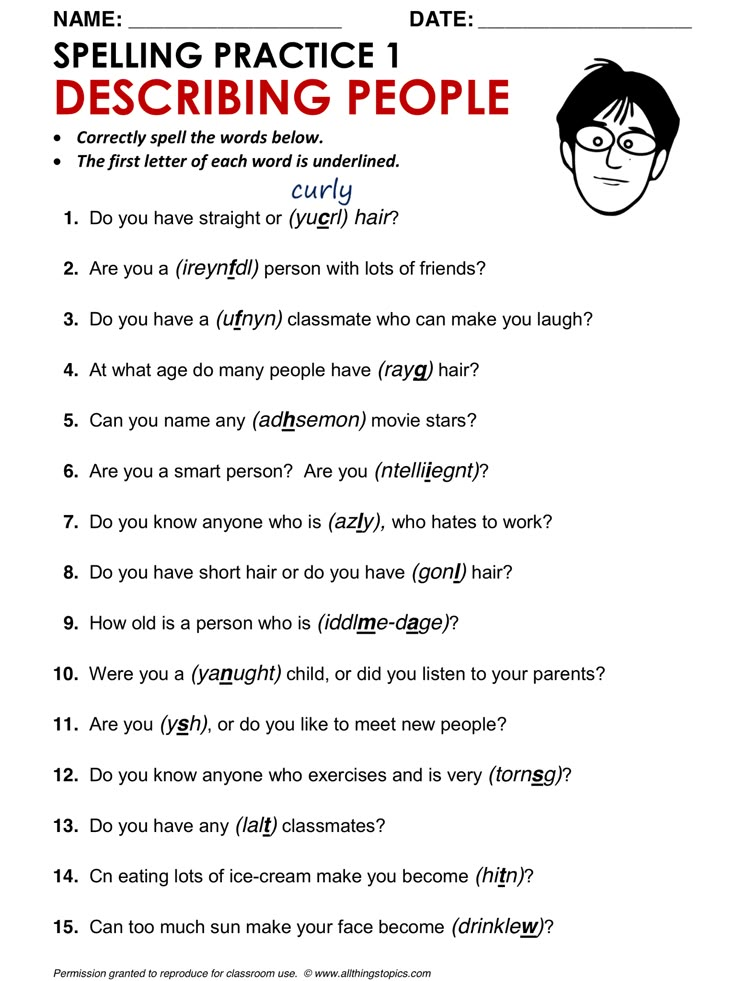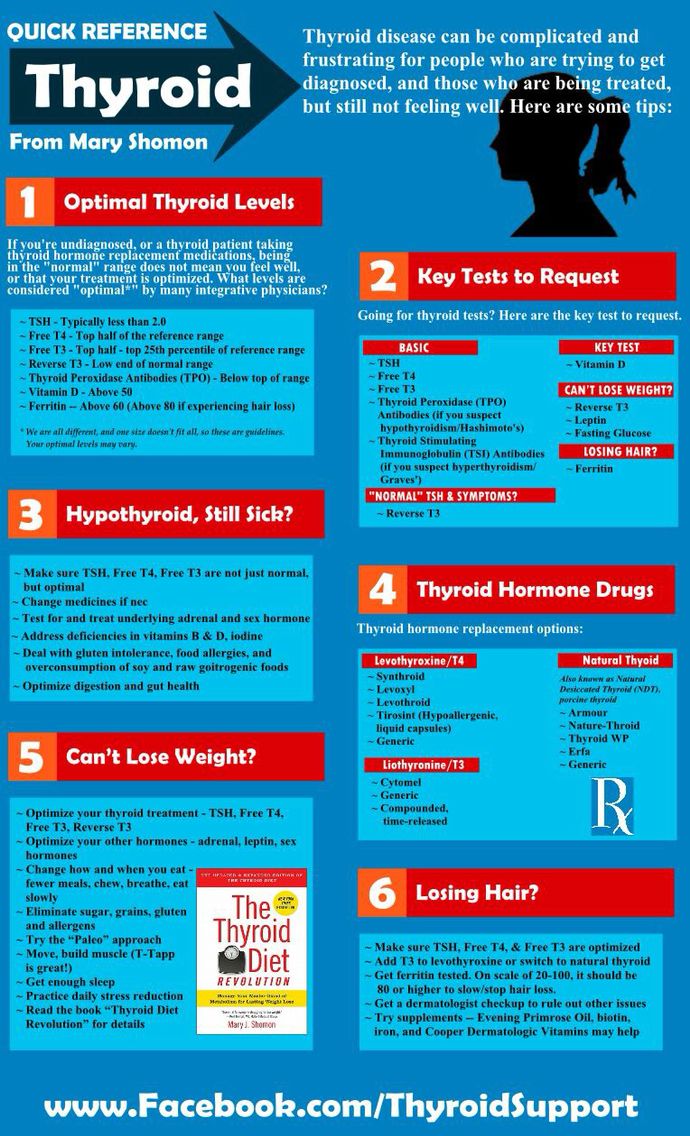Covert schizoid personality type
Covert Schizoid Personality Disorder (A Complete Guide)
In this article, we will discuss Covert Schizoid Personality Disorder. We will do that by discussing schizoid personality disorder, its signs, its overt and covert types, possible causes, and treatment of this condition.
Family Counseling
Please enable JavaScript
Family Counseling
Covert Schizoid Personality DisorderPeople with covert schizoid personality disorder exhibit the same symptoms as overt schizoid personality disorder but they are less apparent and observable to others. These people seemingly lead normal lives but struggle with emotional expressions and social relationships. Their self-concept is inauthentic and they feel empty. Some of them may even have hidden grandiosity.
Their interpersonal relationships are marked by oversensitivity and a hunger for love. They feel envious of people who are spontaneous and want to be involved in group activities. At their workplace, they are capable of working steadily but lack clear goals. Similarly, at the cognitive level, they alternate between being in contact with reality and losing it. Their morality also alternates from being altruistic to shifting to doing odd crimes.
Personality refers to a certain pattern of behavior and thoughts which direct how an individual process and perceives information about themselves and the world. We have certain personality traits that are relatively stable and govern our behavior in different social contexts.
Many people exhibit behavior that is in accordance with the norms of society. However, some people show personality traits that are away from the norm. It is destructive to them as well as the people around them. Their functioning is markedly impaired which is why these people need professional help to lead a normal life. Such people have a personality disorder.
If you’re facing this, it may be a good idea to seek the help of a therapist or other mental health professional.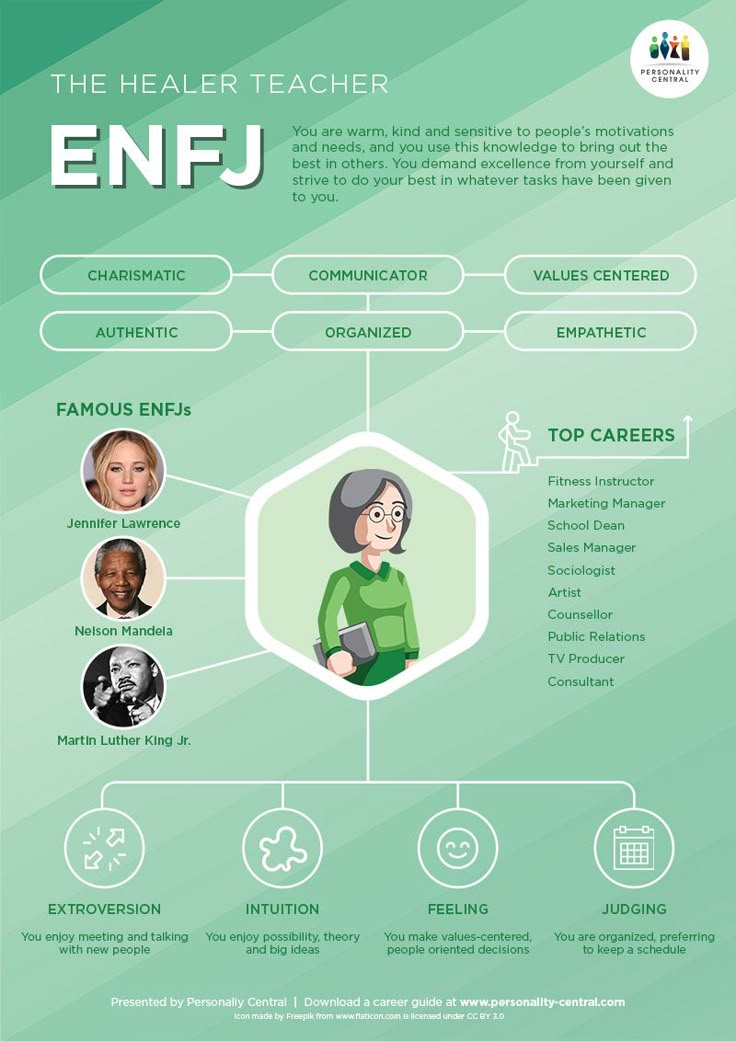 You can find a therapist at BetterHelp who can help you learn how to cope and address it.
You can find a therapist at BetterHelp who can help you learn how to cope and address it.
A schizoid personality disorder is one of the rare personality disorders in which the person has limited emotional experiences. This includes limited facial expressions as well as a preference to avoid social situations and interaction with others. Such people prefer to spend time alone in their minds. Their functioning is impaired as their limited communication and social interaction affect their daily, social, and occupational life.
Men have schizoid personality disorder more commonly than women. It starts to develop its symptoms in early adulthood. These people are socially detached and struggle with it expressing emotions. People perceive them to be detached and cold. They are afraid of intimacy and close relationships.
Similarly, their intimate life is also quite limited. Such people only have close relationships with their family members. Even those relationships are not too close. They are comfortable being in isolation and follow life in a systematic routine. They spend their time daydreaming and fantasizing and are completely uninterested in social interactions.
Even those relationships are not too close. They are comfortable being in isolation and follow life in a systematic routine. They spend their time daydreaming and fantasizing and are completely uninterested in social interactions.
A schizoid personality disorder is part of the schizophrenia spectrum. It’s behavior particularly lack of social connections and emotional expressions are closely related to symptoms of schizophrenia. If people with schizoid personality disorder continue to deteriorate and lose touch with reality, they go on to develop schizophrenia particularly predominant symptoms of hallucinations or delusions.
Signs of schizoid personality disorderSigns of schizoid personality disorder include the following:
- these people avoid social activities
- they do not express strong emotions
- they have little or no interest in developing intimate relationships
- they are emotionally cold and detached
- usually, they are at a loss about how to respond to social cues
- they prefer to spend time in solitary activities and jobs
- they lack motivation and do not perform well at school or work
- they value autonomy and have very few close friends
- they do not enjoy many activities
- they are indifferent to criticism or praise
- their mood usually remains the same and there is no observable change
- they have difficulty experiencing pleasure
Even among schizoid personalities, people might have covert or overt symptoms.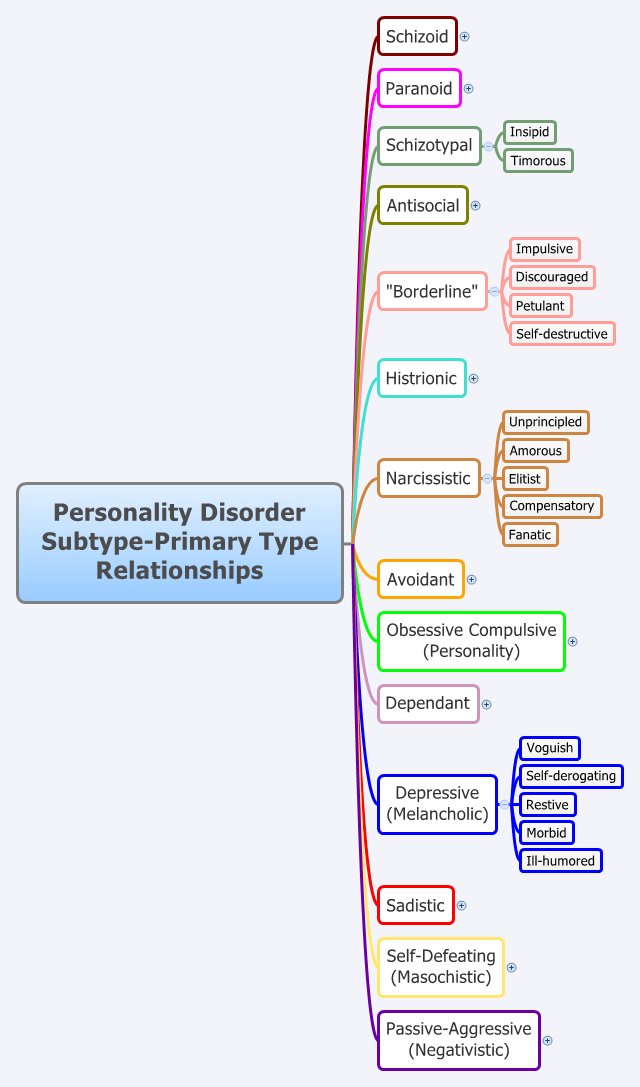 This means that people with overt symptoms may show obvious signs of schizoid personality disorder. They are emotionless and their blank expressions are apparent to others. Similarly, they have little social contact and are uninterested in most things. They spend their time alone and not many people are in close relationship with them.
This means that people with overt symptoms may show obvious signs of schizoid personality disorder. They are emotionless and their blank expressions are apparent to others. Similarly, they have little social contact and are uninterested in most things. They spend their time alone and not many people are in close relationship with them.
Compared to them, covert schizoid personality may not show apparent or observable symptoms. People see them as sociable with stable jobs and multiple relationships. However, these people do not have intimate or close emotional bonds. They keep their emotions to themselves and are private. They also experience emptiness.
Causes of schizoid personality disorderMultiple factors may contribute to schizoid personality disorder. However, clear causes of it are unknown. Different theories have tried to explain how this disorder develops. Some theorists suggest that behavior depicted by people with a schizoid personality disorder is learned. Biological theorists have a different stance as they suggest that chromosomal or nervous system disorders may contribute to such symptoms. Psychodynamic theorists believe that there is a deficiency in normal ego development which directs such people to behave in this way.
Biological theorists have a different stance as they suggest that chromosomal or nervous system disorders may contribute to such symptoms. Psychodynamic theorists believe that there is a deficiency in normal ego development which directs such people to behave in this way.
Some researchers suggest that since this disorder is closely linked with schizophrenia, so it may share the same risk factors as the schizophrenia spectrum disorders. Factors that increase the chances of a person having schizoid personality disorder include having a family member with a schizoid personality disorder or schizophrenic disorder.
Similarly if in childhood a parent was cold or unresponsive to the emotional needs of a person, such an individual may grow up to show symptoms of schizoid personality disorder. Apart from that, if a person is was sensitive in childhood and was treated with annoyance or if their feelings were constantly disregarded, these people may grow up to be emotionally detached.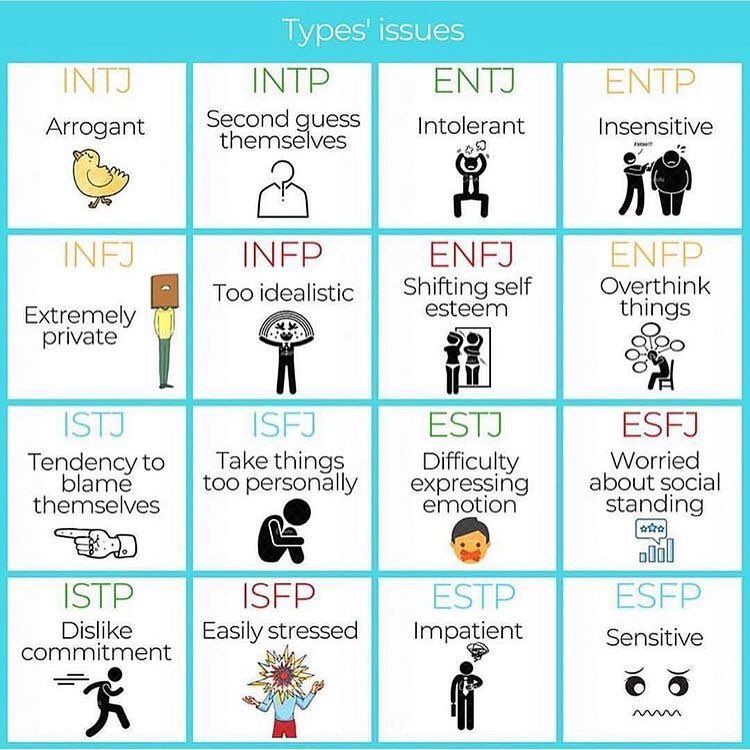 Additionally, early abuse or neglect may contribute to such symptoms.
Additionally, early abuse or neglect may contribute to such symptoms.
In short, genetic and early childhood environments can be the main sources of the development of symptoms of schizoid personality disorder.
Treatment of schizoid personality disorderPeople with a schizoid personality disorder may experience a decrease in symptoms with time. However, this condition can also be long-term. Some people with a schizoid personality disorder may develop other disorders like depression, anxiety, drink and drug addiction. It can cause great distress to family members.
Professional help can help in treating schizoid personality disorder. However, since such people prefer to be socially isolated, it can hinder their recovery. Lack of motivation may be another factor contributing to their unsuccessful treatment. This is because such people do not feel like there is anything wrong with them. They also have difficulty interacting with the mental health professionals who provide them with treatment.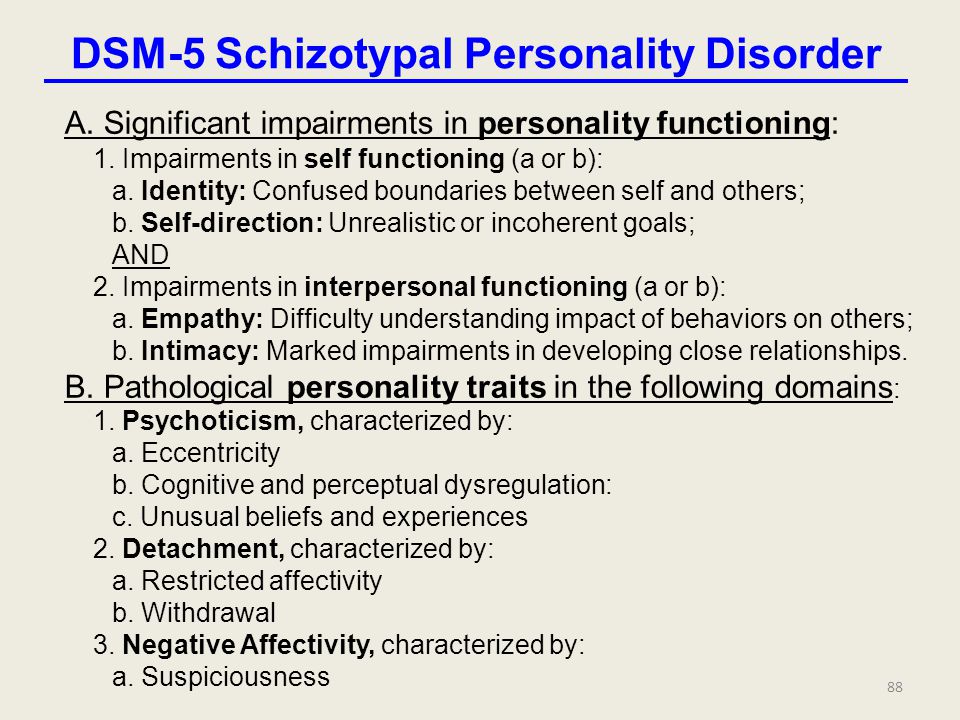 Nonetheless, such people can respond well to treatment and live healthy lives.
Nonetheless, such people can respond well to treatment and live healthy lives.
Recommended treatment for them includes psychotherapy with a professional therapist having expertise in treating this condition. Medication can be helpful in reducing symptoms of comorbid disorders like depression, anxiety, and addiction. In counseling, the goal of the treatment can be to solve immediate problems that are a source of stress. A treatment plan can be designed around current stressors and build up to engaging such individuals in increasing their social interaction and deepening their emotional experience.
It is important that the therapist establishes a trusting relationship with such people and respect their boundaries. Cognitive-behavioral therapy especially cognitive restructuring can help in addressing irrational thoughts that contribute to the behavior of these people. They can be taught coping skills and self-awareness exercises in reducing their reluctance in pursuing social relationships. Self-help strategies can also be taught to such individuals.
Self-help strategies can also be taught to such individuals.
Yes. Some people with a schizoid personality disorder may develop schizophrenia with time.
Do schizoids feel lonely?No. It is unlikely that schizoids feel alone since they actively prefer to be alone and away from people. Yet, some studies suggest that they do feel alone.
Is schizoid personality disorder bad?A schizoid personality disorder is not violent or dangerous to others but it can be harmful to the person suffering from it.
Does schizoid worsen with age?Yes. It is highly likely that schizoid personality disorder worsens with age if left untreated. However, some studies also suggest that the symptoms of schizoid personality decrease with time.
ConclusionIn this article, we discussed Covert Schizoid Personality Disorder.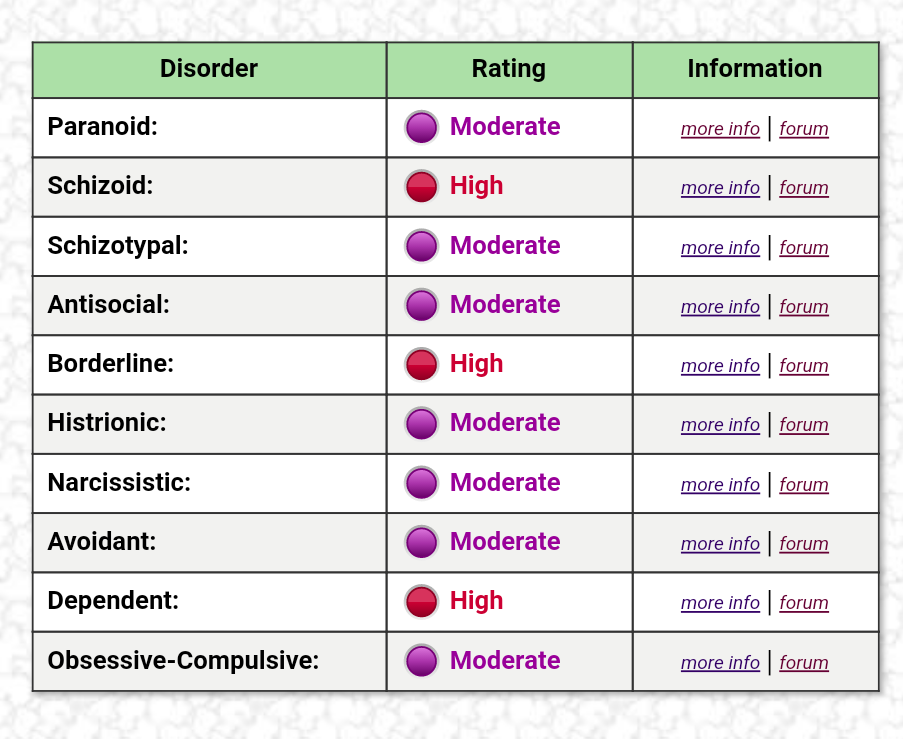 We found that People with covert schizoid personality disorder exhibit the same symptoms as overt schizoid personality disorders but they are less apparent and observable to others. These people seemingly lead normal lives but struggle with emotional expressions and social relationships. Their self-concept is inauthentic and they feel empty. Some people may even have hidden grandiosity.
We found that People with covert schizoid personality disorder exhibit the same symptoms as overt schizoid personality disorders but they are less apparent and observable to others. These people seemingly lead normal lives but struggle with emotional expressions and social relationships. Their self-concept is inauthentic and they feel empty. Some people may even have hidden grandiosity.
Their interpersonal relationships are marked by oversensitivity and a hunger for love. They feel envious of people who are spontaneous and want to be involved in group activities. At their workplace, they are capable of working steadily but lack clear goals. Similarly, at the cognitive level, they alternate between being in contact with reality and losing it. Their morality also alternates from being altruistic to shifting to doing odd crimes.
I hope you found this article interesting. If you have any queries or comments, please state them in the comment section 😊
Citationshttps://www. counselling-directory.org.uk/schizoid.html#schizoidpersonalitydisordertreatment
counselling-directory.org.uk/schizoid.html#schizoidpersonalitydisordertreatment
https://psychology.wikia.org/wiki/Schizoid_personality_disorder
Your feedback helps us improve the quality of these articles.
Covert Schizoid Sexuality: Behavioral Patterns
Individuals diagnosed with schizoid personality disorder can have “covert” symptoms. Meaning, people with this disorder many not appear to be schizoid on the surface. Covert schizoids appear to be very social, have an active social life, and can even seem extroverted on the surface. However, these individuals are basically just putting on a show when they are in public. They keep their emotions sequestered and may even leave a situation that requires them to be emotionally intimate with someone else.
In regards to their sexuality, covert schizoids may not be interested in sex like a traditional schizoid. In many cases though, individuals with schizoid personality disorder many seek out “secret” sex and if they are in a relationship have affairs.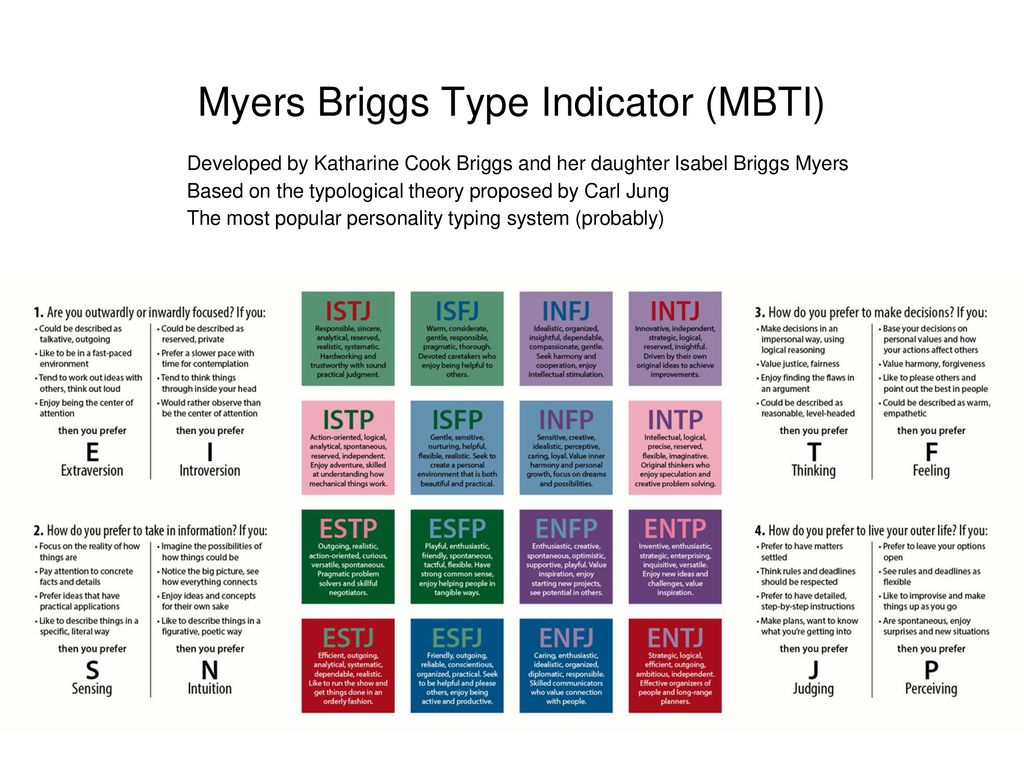 They can seek out sexual partners that they do not know such as meeting people online (e.g. dating apps) and/or at bars. This allows them to experience short term encounters and fill a sexual void without feelings of emotional intimacy.
They can seek out sexual partners that they do not know such as meeting people online (e.g. dating apps) and/or at bars. This allows them to experience short term encounters and fill a sexual void without feelings of emotional intimacy.
A leading researcher, Harry Guntrip describes a “secret sexual affair” that married schizoids may be involved with. This is merely an attempt to reduce the quantity of emotional intimacy focused within a single relationship. Covert schizoids may exclude sex as being “too intimate” for a permanent relationship – which may result in covert schizoids having sex with strangers.
Another aspect to keep in mind in regards to individuals with covert schizoid personality disorder is that they may restrict all of their relationships to sexual contacts and not share any other emotional or bonding experiences with the partner. Individuals that are covert or “secret” schizoids tend to have social skills to find other partners. For this reason, they are more likely to end up engaging in sexual activity.
- Affairs: Secret sexual affairs or “cheating” is likely the case with some schizoids. They feel too emotionally connected to their partners and don’t like the feelings of emotional intimacy. In this case, they may seek out other secretive partners and have affairs.
- Asexuality: Some covert schizoids are asexual – and do not desire any sort of sexual activity with the opposite sex. Typically this is not the case with covert schizoids and is more common with traditional schizoids.
- Celibate: Sometimes people with covert schizoid personality disorder are completely celibate. They may turn their focus towards other areas of life and not be motivated by primal, sexual instincts.
- Frequent sex: Some covert schizoids may engage in very frequent sexual activity – and in some cases a sex addiction. They do this to fill voids in their life including: emotional intimacy voids and social voids.
- Masturbation: Some secret schizoids may engage in masturbation or become addicted to pornography.
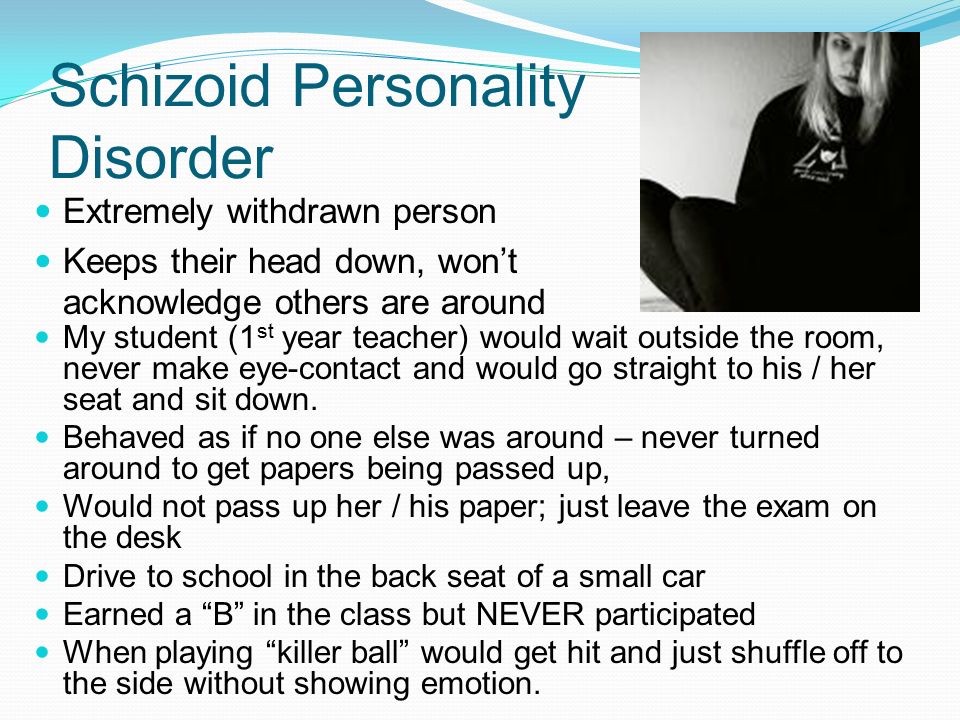 This allows them to experience sexual gratification without seeking out another partner.
This allows them to experience sexual gratification without seeking out another partner. - Meets at bars / online dating: An easy way for covert schizoids to meet people is at bars and/or via online dating sites. Being at a bar under the influence of alcohol makes it easier to socialize and online dating sites can help minimize anxiety associated with social interaction.
- One-night stands: It is common for schizoids to have one night stands as a means to avoid emotional intimacy with the prospective partner. Instead of something ongoing, they may resort to finding a new person each night to have sex with.
- Schizoid hunger: This is a phenomenon detailed by Jeffrey Seinfeld (New York University), who published reports that schizoids seek out sexual pursuits to fill voids of emotional hunger, loneliness, and emptiness. The sex serves as a temporary solution to meeting the covert schizoid’s needs.
- Sex with strangers: It is common for individuals that are covertly schizoid to engage in sex with strangers.
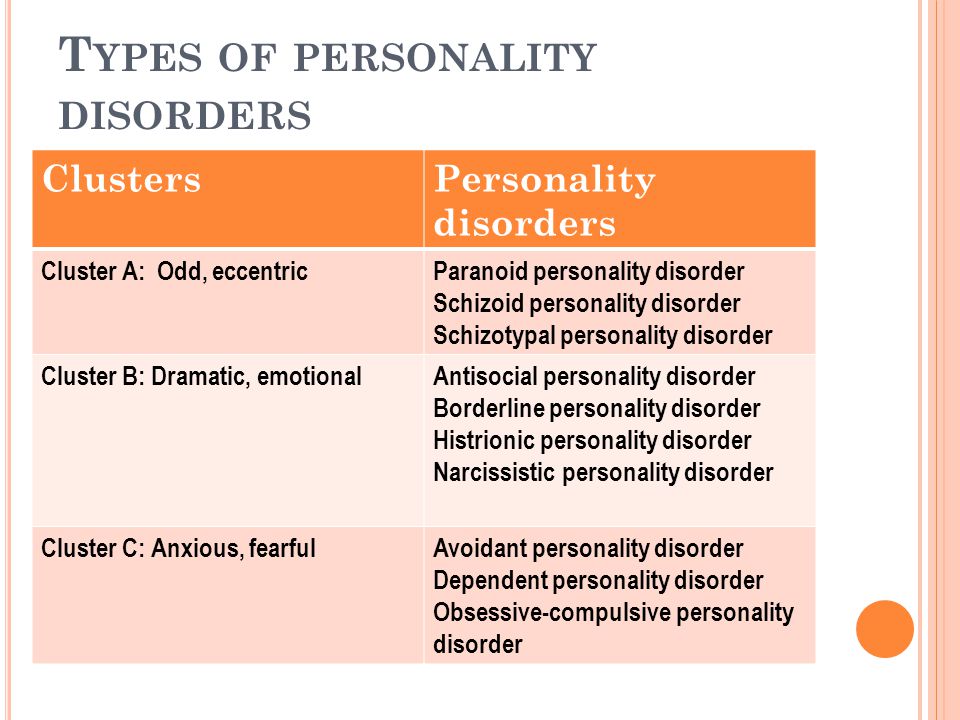 People that they just met and/or new social contacts may serve as the perfect opportunity for sex without a long term emotional component.
People that they just met and/or new social contacts may serve as the perfect opportunity for sex without a long term emotional component.
Are you a covert schizoid? How is your sexual behavior?
Although it is pretty difficult to study covert schizoids in general, there is some good information on their sexual behavior from various researchers. If you would label yourself or have been formally diagnosed with schizoid personality disorder (SPD) and you would classify the diagnosis as a “covert” subtype, how is your sexuality. It would help if you shared your thoughts and personal experiences in the comments section.
Schizoid Personality Disorder | Clinical Center "Psychiatry-Narcology"
Working hours
Mon.-Fri.: 8:00-17:00
Phones
call center
+375 (17) 311-00-99
+375 (29) 899-04-01
+375 (29) 101-73-73
Ask a question Ask a question
- About Us
- News
- Schizoid personality disorder
Schizoid personality disorder is a withdrawal into oneself, avoidance of emotional attachments, a tendency to fantasies and immersion in one's own inner world. People who suffer from schizoid disorder have difficulty communicating and making social connections. The help of a psychotherapist allows you to soften the sharp edges of interaction with the outside world.
People who suffer from schizoid disorder have difficulty communicating and making social connections. The help of a psychotherapist allows you to soften the sharp edges of interaction with the outside world.
It is no coincidence that the word “schizoid” is consonant with schizophrenia: the manifestations of schizoid disorder are similar to the symptoms that are observed in patients with schizophrenia: isolation, peculiar thinking (due to the fact that a person is constantly alone with himself), emotional coldness, callousness.
However, with this disorder, a person adequately perceives reality (no delusions and hallucinations). Schizoid disorder is a character trait, a tendency to avoid interaction with the outside world through voluntary social isolation, isolation in oneself and one's own fantasies.
Schizoid Personality Disorder: Symptoms and Manifestations
To establish a diagnosis of schizoid personality disorder, the therapist must see the general features of schizoid personality disorder, as well as at least three specific criteria.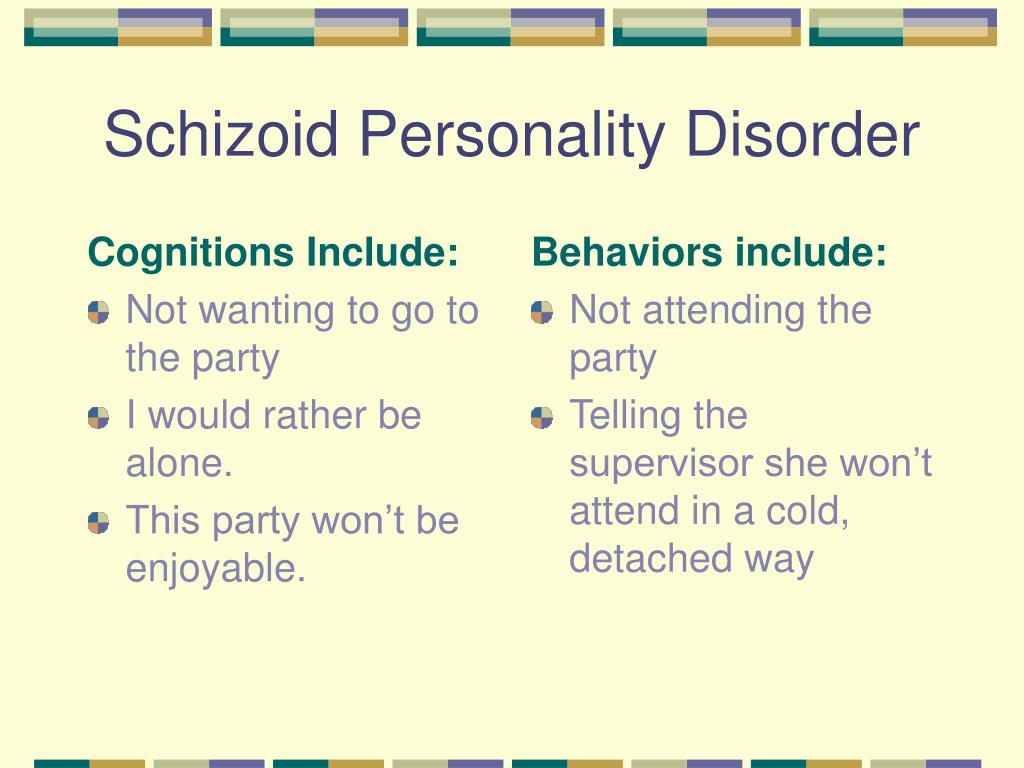 The general signs of a personality disorder include:
The general signs of a personality disorder include:
- a person is removed from the world around him, has poor control over his emotions, often becomes irritated or angry;
- odd behaviors that persist for at least a year;
- difficulties affect all spheres of a person's life (at home, at work, interaction with strangers) and significantly disrupt adaptation to society's norms;
- a person opposes himself to society and deliberately violates the norms of behavior in society;
- The disorder occurs in childhood or adolescence and reaches its peak during adulthood.
Schizoid personality disorder must meet at least three of the following criteria. Symptoms specific to schizoid personality disorder are as follows:
- Little pleasure - schizoid individuals usually have a limited, narrow circle of interests, where, however, they can achieve great success (for example, talented scientists, musicians).
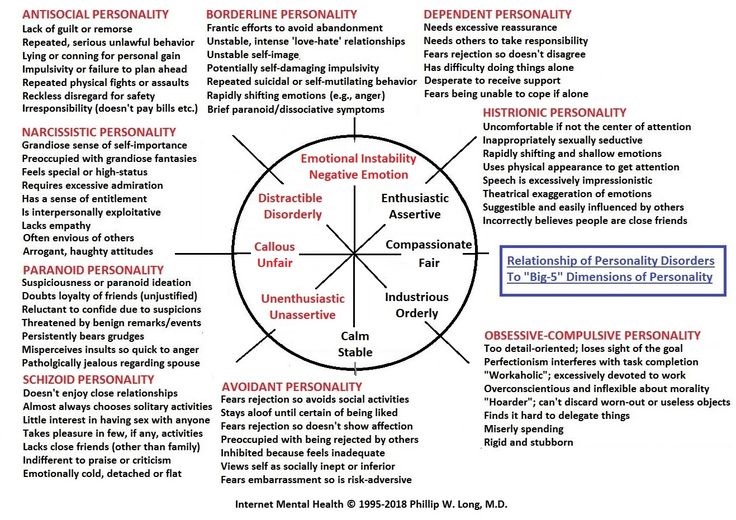
- Emotional coldness - women and men with schizoid disorder are stingy with emotions, both positive and negative.
- Selfishness, self-centeredness — a person is immune to the opinions of others, both critical and praise.
- Withdrawal into one's own fantasies.
- Inclination to solitude, lack of close friends (sometimes only friendly affection) and unwillingness to get close to others, decreased libido.
At the time of diagnosis, the doctor performs a differential diagnosis with schizophrenia, paranoid and other personality disorders, schizotypal, depressive, bipolar affective and anxiety disorders. It depends on the diagnosis which treatment regimen the specialist will offer - medication or predominantly psychotherapeutic.
How is schizoid personality disorder treated?
Schizoid personality disorder is treated by a psychotherapist.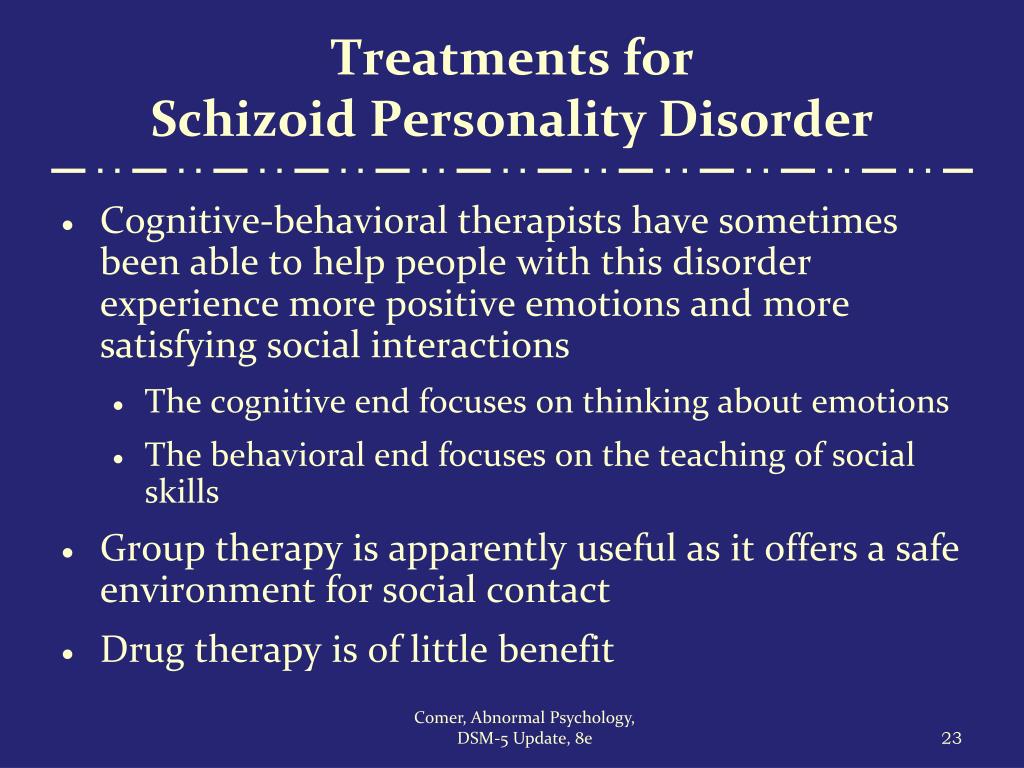 The main method of treatment is individual psychotherapy combined with restorative and relaxing procedures (physiotherapy, massage, relaxation sessions). Drug treatment for schizoid disorder is rarely used if a person has symptoms of depression or neurosis.
The main method of treatment is individual psychotherapy combined with restorative and relaxing procedures (physiotherapy, massage, relaxation sessions). Drug treatment for schizoid disorder is rarely used if a person has symptoms of depression or neurosis.
During the course, the doctor does not set the task of completely changing the client's character, but only helps him adapt to the world around him, become professional, and maintain comfortable relationships with others.
If schizoid disorder is left untreated, its symptoms (emotional coldness, withdrawal, and seclusion) can significantly interfere with a fulfilling life. Turning to a psychotherapist helps to significantly improve the quality of life of people with schizoid disorder and their loved ones.
what does that really mean?
We have all met such people - closed and emotionally cold. They spend their whole lives in search of rapprochement, but as soon as they get what they want, they move away.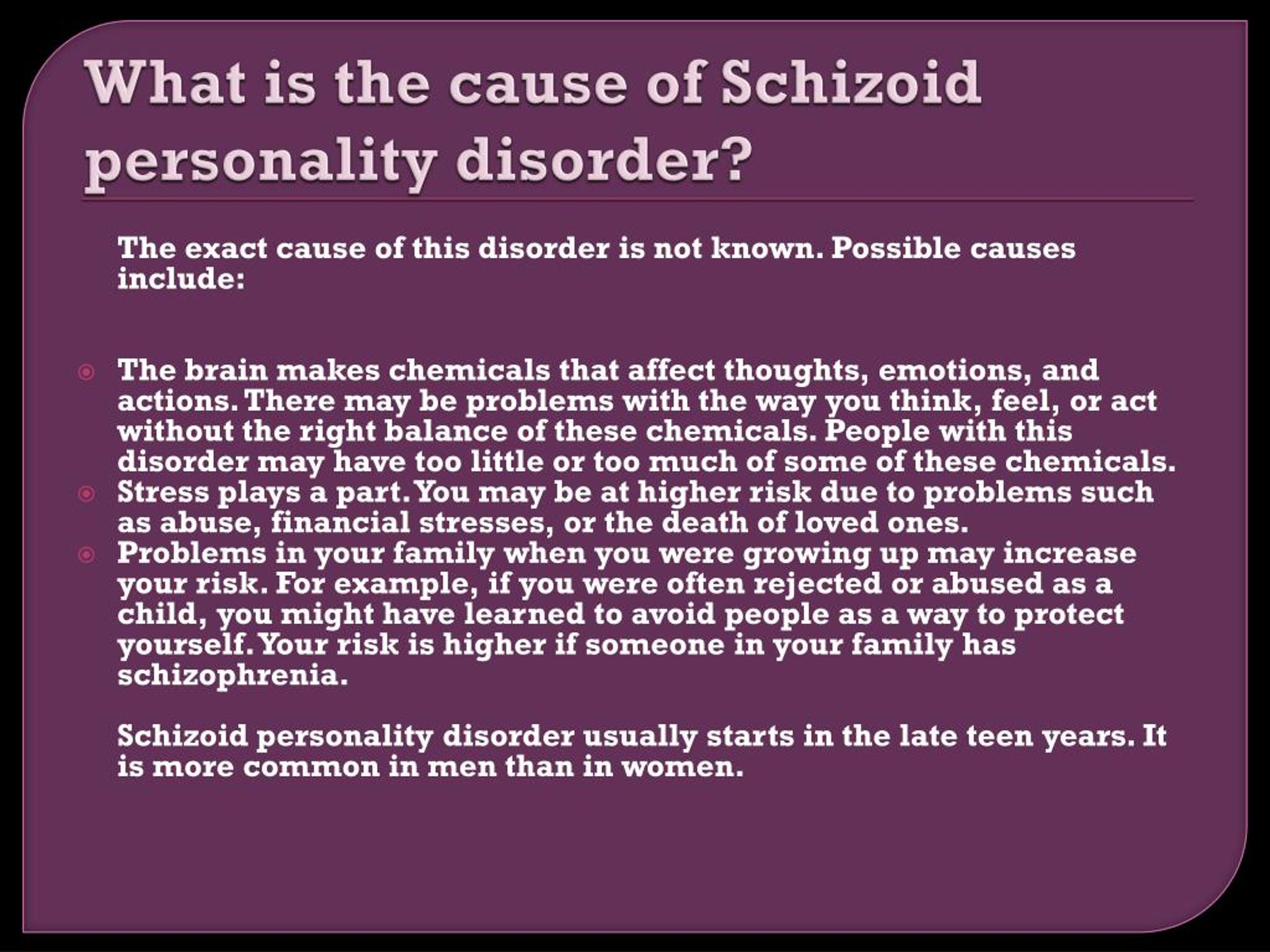 Or they begin to test the relationship for strength. You always feel lonely around them. It seems that they are completely incapable of receiving care and love. No, they are not daffodils. Psychologists call them schizoids. We understand what is hidden behind this term in fact.
Or they begin to test the relationship for strength. You always feel lonely around them. It seems that they are completely incapable of receiving care and love. No, they are not daffodils. Psychologists call them schizoids. We understand what is hidden behind this term in fact.
Who are schizoids?
The main characteristic of schizoid accentuation is detachment from others, isolation in oneself. Schizoids seem self-sufficient and uninterested, but at the same time have a deep need for another person. Extremely scattered and yet very attentive. They give the impression of being passive and insensitive, but inside they are active, emotions are seething.
Schizoids may have extraordinary abilities, but at the same time they have great difficulty in building close relationships. When approaching others, a person of the schizoid type constantly scans the field of relations "between" for security (long "pre-contact" is important to him). He is too sensitive to intense forms of interaction, so he uses his main defense mechanism - withdrawing into himself and his fantasies.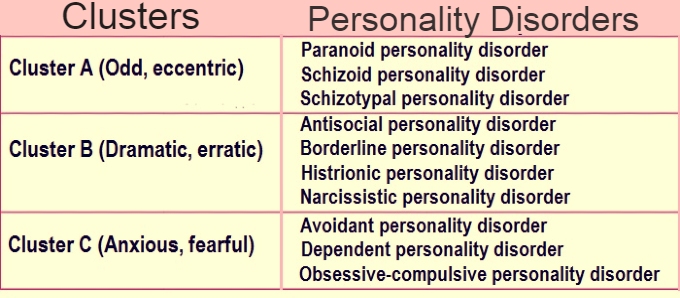 Deflection (intellectualization) is also very characteristic of such people - immersion in lengthy reasoning, excessive theorizing and philosophizing, in the sphere of thoughts and ideas, instead of being “here and now” and facing real feelings (one's own or others).
Deflection (intellectualization) is also very characteristic of such people - immersion in lengthy reasoning, excessive theorizing and philosophizing, in the sphere of thoughts and ideas, instead of being “here and now” and facing real feelings (one's own or others).
Intense emotional contact takes a lot of resources from them, their "emotional container" is too small to withstand the intense feelings of others (even if they are filled with warmth). Lack of empathy makes them cold and sometimes even cruel to those around them. At the same time, in relation to their personal interests, they can show extreme vulnerability, thin-skinnedness and painful pride. Prone to refined self-observation, they often reach the point of self-torture.
In appearance, they are most often ectomorphs (thin body, long arms and legs, as if the body itself doubts its “right to be”), their facial expressions, as a rule, are devoid of liveliness, movements are angular, they almost do not use gestures, voice slightly modulated, the conversation is sometimes conducted on one note.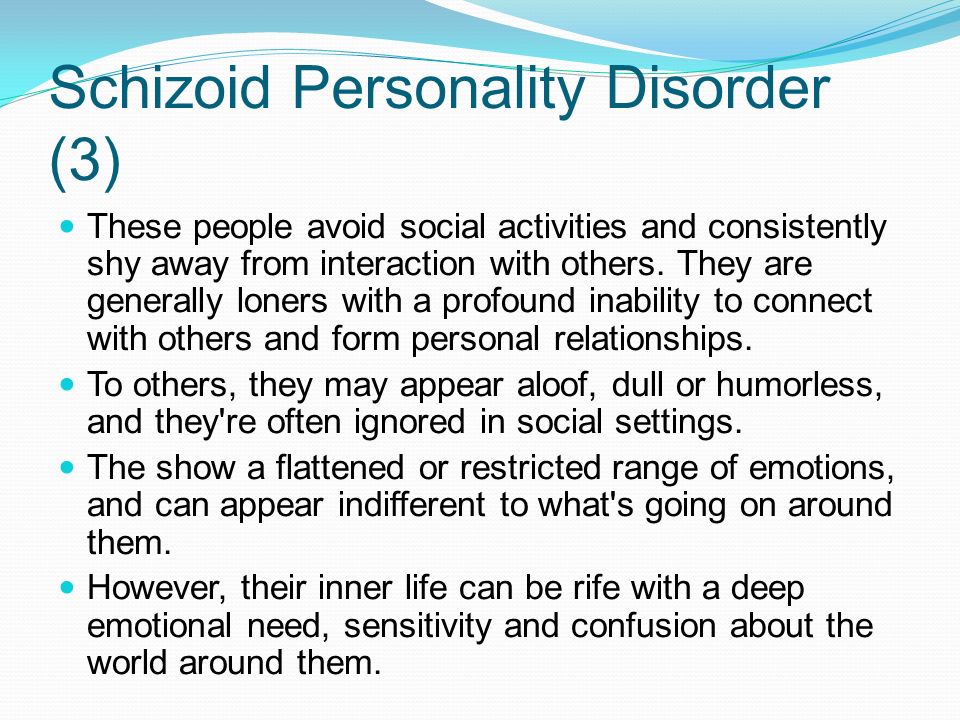 Laconic and reserved, such people usually choose a solitary activity - they are very successful in science and art. In their interests, they are, as a rule, constant and selective.
Laconic and reserved, such people usually choose a solitary activity - they are very successful in science and art. In their interests, they are, as a rule, constant and selective.
Why are they like this?
In analytical theory, it is believed that the formation of the schizoid type occurs before the age of one and a half years (preverbal period) in conditions when the parent is either emotionally poor and withdrawn, often leaves the child in his own care, or, on the contrary, is hyper-controlling and absorbing, breaking boundaries . Having experienced indifference and neglect from significant adults, the child escapes into his inner world from the traumatic experience of human relationships.
The lack of parental warmth is superimposed on the initially high sensitivity of the child to rejection, due to which the trauma is formed. These children, as a rule, react sharply to all external stimuli - sound, light, any changes, tactile sensations (like labels scratching the skin). When we take such a child in our arms, he does not cuddle, but moves away, his body becomes rigid. They feel completely unprotected, and any contact is perceived by them as a violation of their integrity.
When we take such a child in our arms, he does not cuddle, but moves away, his body becomes rigid. They feel completely unprotected, and any contact is perceived by them as a violation of their integrity.
The basic relationship conflict in schizoid people concerns closeness and distance, love and fear. Fluctuation between approach and distance is a natural state for the schizoid. Their lives are saturated with ambivalence about attachment: on the one hand, they crave it passionately, and on the other, they feel the constant threat of being absorbed in the relationship. The very fact of achieving a close emotional connection can push the schizoid to constantly sabotage it. Such a person unconsciously provokes hostility and rejection, testing the contact for the risk of repeating the experience of early traumatization. Because of this disharmony, people of this type often suffer from depression and anhedonia (inability to experience joy).
What to do?
If you are in a relationship with a schizoid
You can invest your psychic energy in a relationship, but it will always be a one-sided game - you will not receive the necessary emotional response in return. The sensation of a fish beating on ice very often accompanies partners of schizoids.
The sensation of a fish beating on ice very often accompanies partners of schizoids.
When a person with a schizoid accentuation is suffering, you can try to give him support, and he will withdraw inconsistently. Moreover, this is not a narcissistic counter-dependence (the “catch me” game), but an attempt to move to a safe distance in order to preserve one’s identity from the “invaders”. When he sees that you are not well, he thinks that the best thing he can do is to move away from you. Leaving you alone with feelings of abandonment and rejection. By and large, he exposes you to the same retraumatization that he himself experienced in early childhood.
How to deal with them then?
-
- Give him more personal space. Do not try to quickly enter into frank conversations and reduce the distance - this can be scary. Stay in pre-contact for the amount of time he needs to build trust.
- Find an indirect way to talk about feelings. It is very difficult for people of the schizoid type to show their emotions, even if they want to.
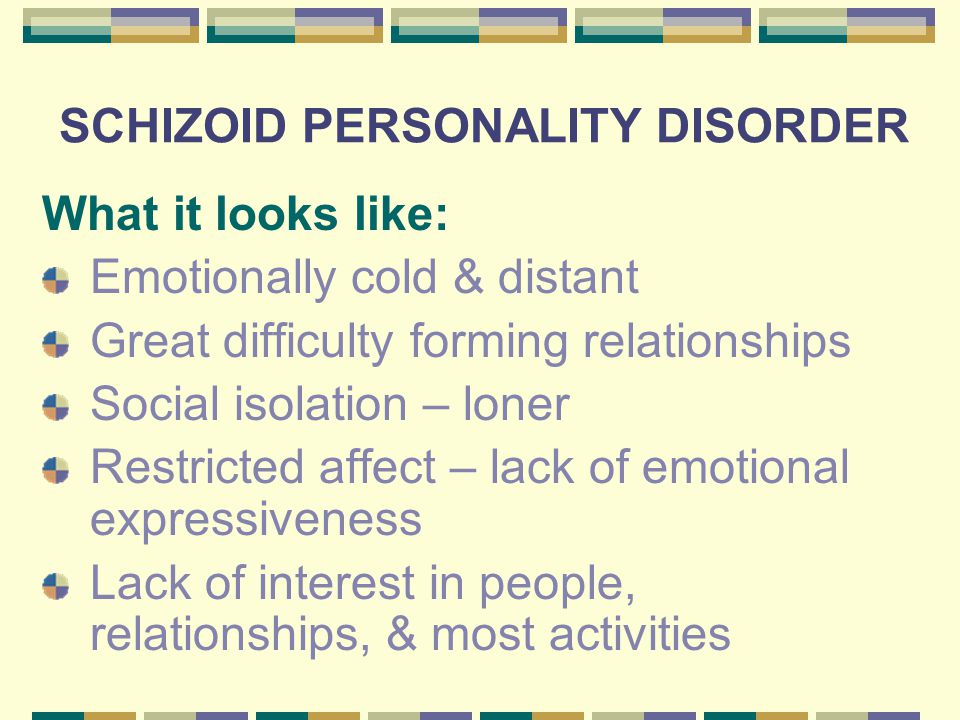 Try to find an allusive way of discussing what is important: talk about films, paintings, music, refer to symbols, metaphors and literary images.
Try to find an allusive way of discussing what is important: talk about films, paintings, music, refer to symbols, metaphors and literary images.
- Be honest and truthful. Schizoids cannot stand lies and feel insincerity well.
- Help him recognize emotions. Learning to manifest, recognize, differentiate them is one of the main skills that can drastically change their lives.
- Do not blame him for his desire to hide in his inner "house". It is extremely important for him to know that he has you, but it is also important to maintain his autonomy. Let him know - "you can move away from me, but I will wait for you."
- The one who has passed all the cordons of his seemingly impenetrable borders, he will make very significant for himself. You will be one of the chosen ones he will let into his world. However, the game should be worth the candle: the inner work in a pair should be done by both. And your partner is a schizoid in the first place - after all, it is he who hurts you with his emotional unavailability.
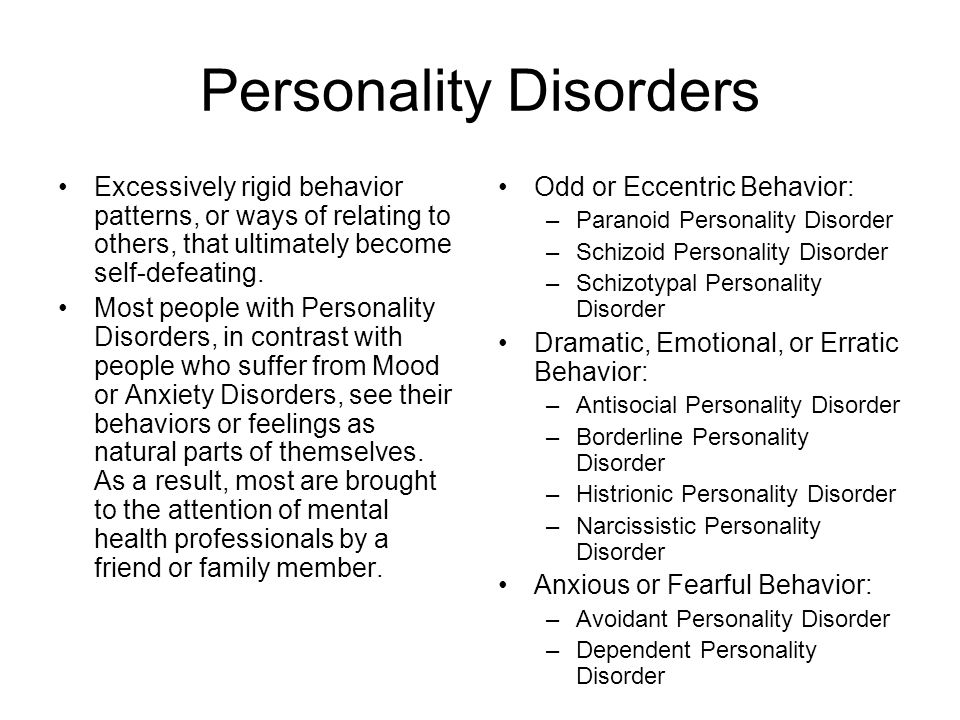
Learn more

